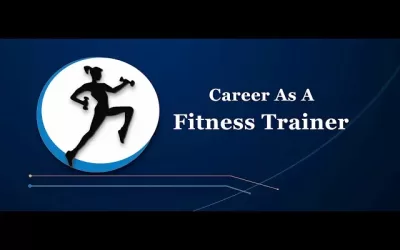Career Compass: Navigating All About Careers Information Exploration
Once the myths are cleared, we understand we must start thinking seriously about careers. The numerous career options available today make the process more challenging. But before we understand how to plan, let’s understand why we should plan a career.
As mentioned earlier, a career is a lifetime journey, so it only makes sense to ensure that we not only enjoy this journey but also bring out the best in us and for us; whether it is intellectual stimulation, money, or fame.
Hence, making a plan and deciding on a career is very important. Though it may not turn out exactly as you had imagined, a plan always helps to keep us on track, know the loopholes, and prepare a backup.
The backup plan has its own share of criticisms – the main being – ‘one will lose the focus and motivation to achieve the dream’. Merely obtaining good marks does not guarantee a seat in a desired course or college. But given today’s increasingly competitive times, lack of seats, more applicants, and well-prepared students; it becomes imperative that a second-best option is kept ready.
Nevertheless, having a plan has never harmed anyone; and especially in today’s uncertain times, it makes sense to have one. So, moving on certain aspects to be kept in mind while making a career plan:
Discover Your Strengths and Passions:
- Self-Reflection: Take the time to introspect and identify your innate talents and areas where you excel. What subjects or activities do you naturally gravitate towards?
- Personality and Temperament: Consider your personality traits and temperament. Are you analytical, creative, outgoing, or introverted? Certain fields might be a better fit based on your characteristics.
- Explore Your Interests: What are you genuinely passionate about? What activities spark your curiosity and make time fly by? Aligning your studies with your interests can lead to a more fulfilling academic journey.
Chart Your Educational Path:
- Research: Delve into the educational landscape. Investigate different courses, degrees, and specializations that resonate with your identified strengths and passions.
- Curriculum and Structure: Understand each potential path’s curriculum, course duration, and academic requirements. Consider whether a specific path aligns with your preferred learning style and career goals.
- Time Commitment: Realistically assess the time investment required for the chosen course and the subsequent transition into your desired career. This will help you plan and manage your expectations.
Financial Planning and Skills Development:
- Expense Awareness: Be fully aware of the financial implications of studying abroad. This includes tuition fees, accommodation, living expenses, and potential additional costs. Explore scholarships and financial aid options to ease the financial burden.
- Transferable Skills: Beyond your educational qualifications, focus on developing transferable skills to enhance your employability across various fields. These can include communication, problem-solving, critical thinking, and teamwork.
Career Exploration and Decision-Making:
- Job Market Research: Thoroughly research the job market in your chosen field. Understand the demand for graduates with your qualifications, the potential challenges you might face, and the career progression opportunities available.
- Pros and Cons: Weigh the pros and cons of your chosen career path. Consider factors such as salary, work-life balance, job security, and potential for career growth.
- Values Alignment: Reflect on your personal values and career aspirations. Are you driven by financial success, societal impact, creative expression, or personal fulfillment? Choose a career that aligns with your core values.
- Seek Guidance: Connect with qualified career counselors or professionals in your field of interest. Their insights and experiences can offer invaluable guidance and help you make informed decisions.
It is always recommended to make an informed decision rather than based on impression. Be vocal about your career choice, discuss, and find as much as possible. If you made the choices, review them, keeping in mind the above points. Even if you have not thought of what you want to do, you still have time, start now…
There are many who do many things in one lifetime, but we need to know our limits and how far we can go. So be objective in this whole process. But, once you have made a decision, be focused and motivated to achieve your dream.
Remember, careers do not happen overnight. It requires proper planning, persistent efforts, and a continuous learning attitude. For more information please contact us or connect with us on Facebook, Instagram, Twitter (Now X), LinkedIn and explore our videos on YouTube.
Frequently Asked Questions (FAQs) About Careers Information Exploration
1. Why is career planning important?
Career planning ensures you make the most of your journey, aligning your choices with your passions and goals. It helps you find a career that brings personal fulfillment, whether it’s intellectual stimulation, financial success, or making a societal impact.
2. How do I start identifying my career interests?
Self-reflection is your compass in the vast sea of career options. It empowers you to identify your strengths, what you enjoy doing, and what kind of work environment suits your personality. Consider taking career aptitude tests and exploring different fields through internships or volunteer work to further enrich your journey.
3. What if I need clarification on my career path?
It’s normal to feel uncertain. Career exploration is a process. Start by researching various fields, attending career fairs, and talking to professionals in different industries. If needed, seek guidance from career counselors.
4. How do I choose the right educational path for my career goals?
Align your educational choices with your career aspirations. Research the curriculum, course duration, and job prospects for each potential path. Consider the financial implications and whether the program aligns with your learning style.
5. How do I create a backup plan if my first career choice fails?
Having a backup plan is not just a safety net, it’s a reassurance. It can provide peace of mind and prevent you from feeling stuck if your initial plans don’t pan out. Identify alternative career paths that leverage your existing skills and interests to bolster your confidence in your career journey.
6. What are some transferable skills that can enhance my career prospects?
Understanding your transferable skills is like having a versatile toolkit. These skills, including communication, problem-solving, critical thinking, teamwork, leadership, adaptability, and time management, are valuable across various industries, giving you the confidence to navigate your career journey.
7. How can I research the job market in my chosen field?
Utilize online job boards, professional networking platforms (like LinkedIn), and industry publications to learn about current trends, job openings, and salary expectations. Attend industry events and talk to professionals in your field.
8. What factors should I consider when evaluating a career path’s pros and cons?
Assess the potential salary, work-life balance, job security, growth opportunities, and the overall impact of the career on your well-being and personal values.
9. How do I know if a career aligns with my values?
Reflect on what matters most to you in a career. Do you value financial stability, creative expression, helping others, or making a difference in the world? Choosing a career path that aligns with your core values can lead to greater job satisfaction and a sense of purpose in your work.
10. Why should I seek guidance from career counselors or professionals?
Career counselors can provide expert advice, assessment tools, and resources to help you explore career options, develop a plan, and overcome obstacles. Professionals in your field can offer valuable insights into the day-to-day realities of the job, such as the skills and knowledge required, the challenges you might face, and the potential for growth and advancement.
11. What are some common myths about career planning?
Some myths include: there’s only one perfect career for everyone, career paths are linear, and you must decide on a career early in life. In reality, careers can evolve, and it’s okay to change paths.
12. How can I overcome the fear of choosing the wrong career?
Remember that career paths are not set in stone. You can always pivot or adjust as you gain experience and discover new interests.
13. How do I network effectively for career opportunities?
Attend industry events, join professional associations, and connect with people on LinkedIn. Building genuine relationships and offering value to others is essential for effective networking.
14. How do I create a strong resume and cover letter?
Tailor your resume and cover letter to each specific job application. Highlight your relevant skills, experiences, and achievements. Use clear and concise language, and proofread carefully.
15. What are some common mistakes to avoid in career planning?
Avoid rushing into decisions, not seeking advice, and focusing solely on salary. It’s important to consider all aspects of a career, including work environment, growth potential, and personal fulfillment.
16. How can I stay motivated during my career journey?
Set clear goals, track your progress, and celebrate your achievements. Surround yourself with supportive people who encourage your career aspirations.
17. How do I handle career setbacks and disappointments?
View setbacks as learning opportunities. Analyze what went wrong, seek feedback, and adjust your strategies accordingly. Feel free to ask for help and support.
18. How can I continuously develop my skills and stay relevant in my field?
Participate in professional development workshops, online courses, and industry conferences. Stay updated on the latest trends and technologies in your field.
19. How do I maintain a healthy work-life balance?
Set boundaries between work and personal life—schedule time for hobbies, relaxation, and spending time with loved ones. Prioritize your physical and mental well-being.
20. What resources are available to help me with my career planning?
Your school’s career services office, online career platforms, libraries, and career counselors are valuable resources. Don’t hesitate to reach out and utilize these support systems.


